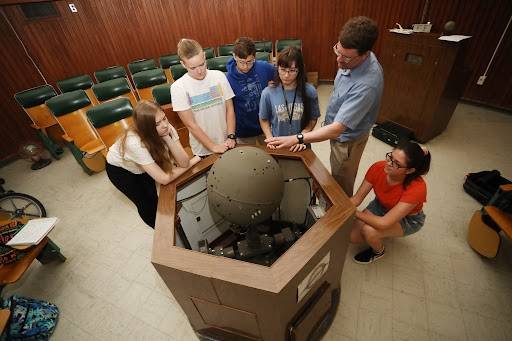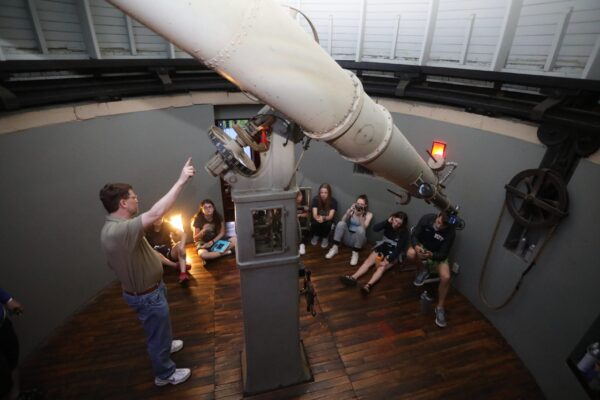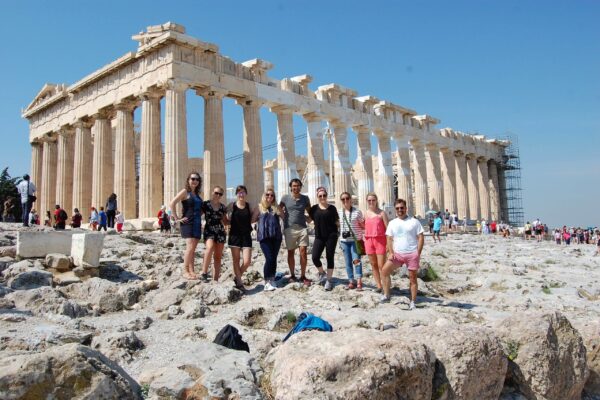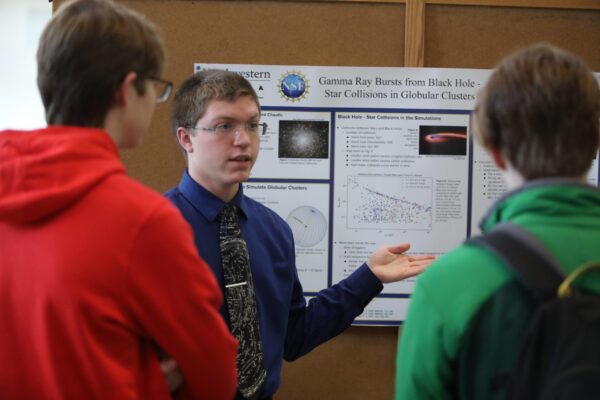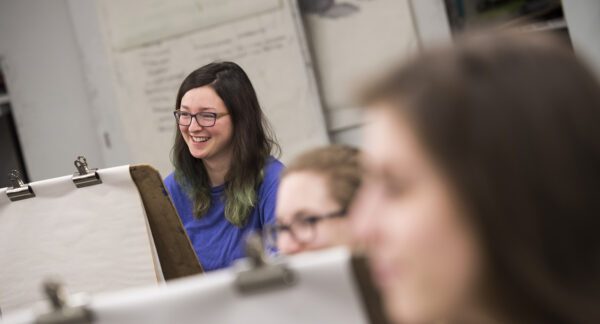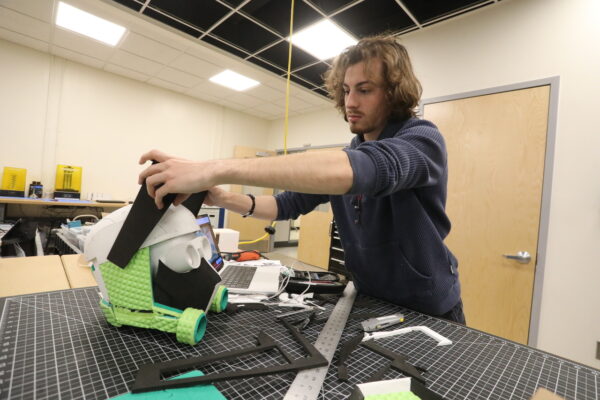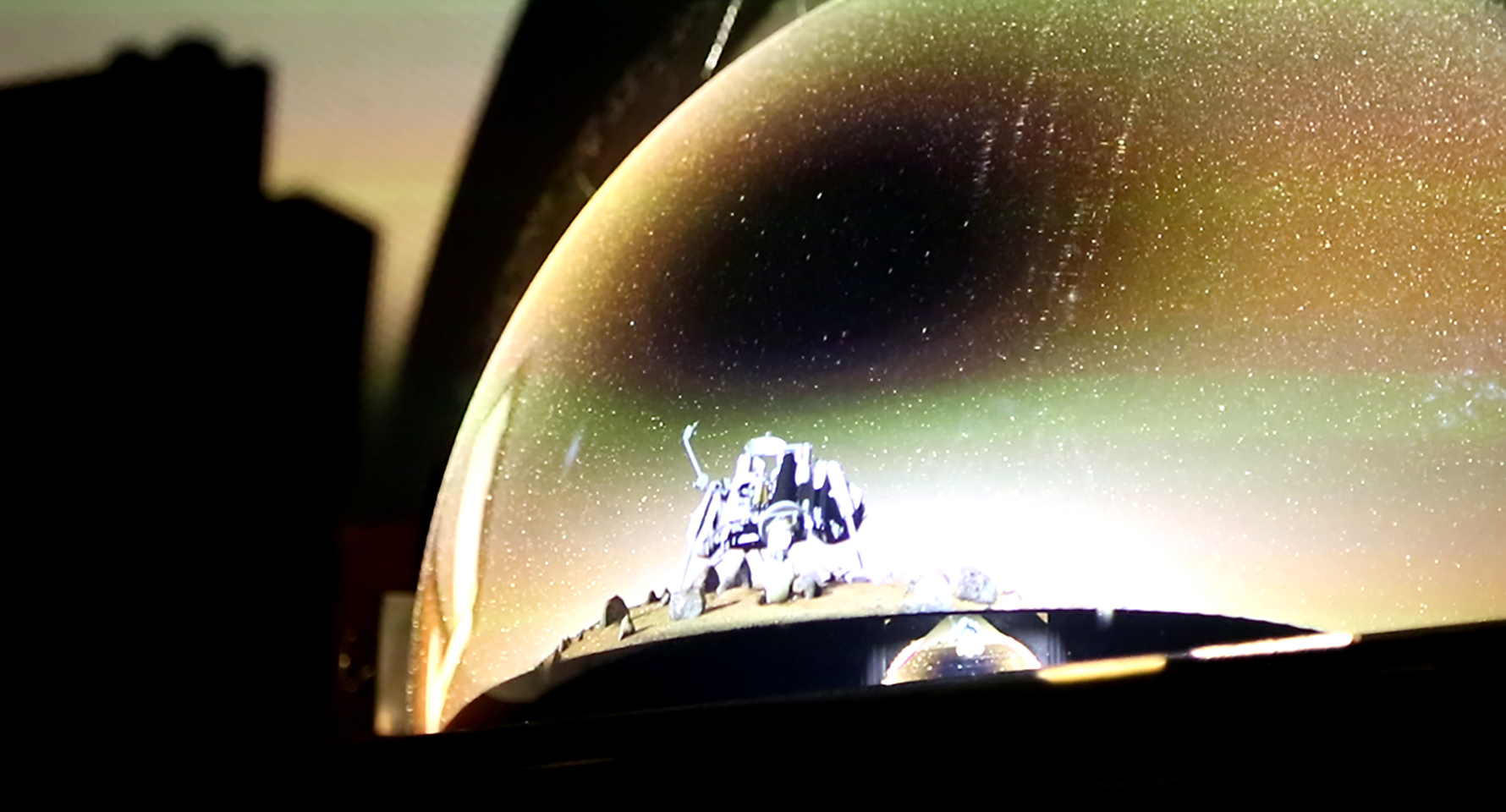
Astronomy
Mathematics and Natural Sciences
Why Minor in Astronomy at Allegheny College
Astronomy is more than the study of the constellations — you’ll develop an appreciation of the beauty and order of the known universe, understanding how astronomers have come to learn what we know. Along the way, you’ll address questions like “What would it be like to travel to a black hole?” “What is the fate of the universe?” and “Is there other intelligent life?”
Unusual Combinations
Students often combine Astronomy with:
Division
- Mathematics and Natural Sciences
Program Type
- Minor
Number of Credits
22 for minorWhere Astronomy Alumni Work Today
Project Chemist
American Colors, Inc.
James Scarborough ’21
Gallery Host
The Westmoreland Museum of American Art
Hannah Maria Davis ’19
Resident Physician
Lehigh Valley Health Network
William Paden ’17
In a small environment, you get a lot of attention from your professors and connect well with your peers. The professors are very approachable. The fact that you can work with your professors in a research environment while you’re a freshman or a sophomore makes Allegheny stand out.
Your Four-Year Journey
Year 1: Understanding
Although there are many ways to complete the astronomy minor, you’ll most likely take mathematics, an introductory physics course, or an introductory astronomy course in your first year. Math and physics will provide you with the foundation for later courses, while the introductory astronomy course will give you an understanding of the tools and fundamental physical concepts of astronomy.
Featured Courses:
Year 2: New Approaches
Many astronomy minors take an introductory physics course in their second year, along with an elective course related to astronomy from within the departments of Geology, Philosophy, or Chemistry.
Featured courses:
Year 3: Delving Deeper
Depending on your graduation year, a third-year astronomy minor will take an advanced course either on stars or on current topics in astrophysics. The former course allows for the exploration of stellar astrophysics: how stars form, live, and die, as well as how they create exotic objects like white dwarfs, neutron stars, and black holes.
Featured Courses
Year 4: The Comp
If you’re a fourth-year astronomy minor, you will take an advanced course either on stars or on current topics in astrophysics. The latter course focuses on galaxies and cosmology, and it explores topics such as the big bang and the fate of the universe.
Featured Courses
Faculty and Staff
Email: epalmer@allegheny.edu
Phone: 814-332-3312
Email: jalombar@allegheny.edu
Phone: 814-332-2975
Featured News
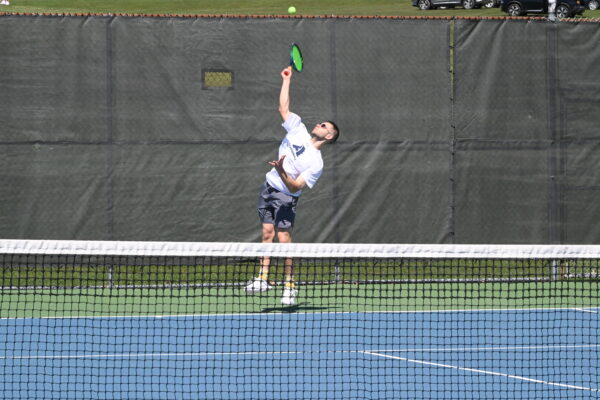
Balancing Backhands & Backcasts: Allegheny Student Shines in Fly Fishing & Tennis
Justin Hardie ’28 doesn’t just compete; he excels, whether he’s knee-deep in a stream halfway across the world or battling on a tennis court closer to campus.


